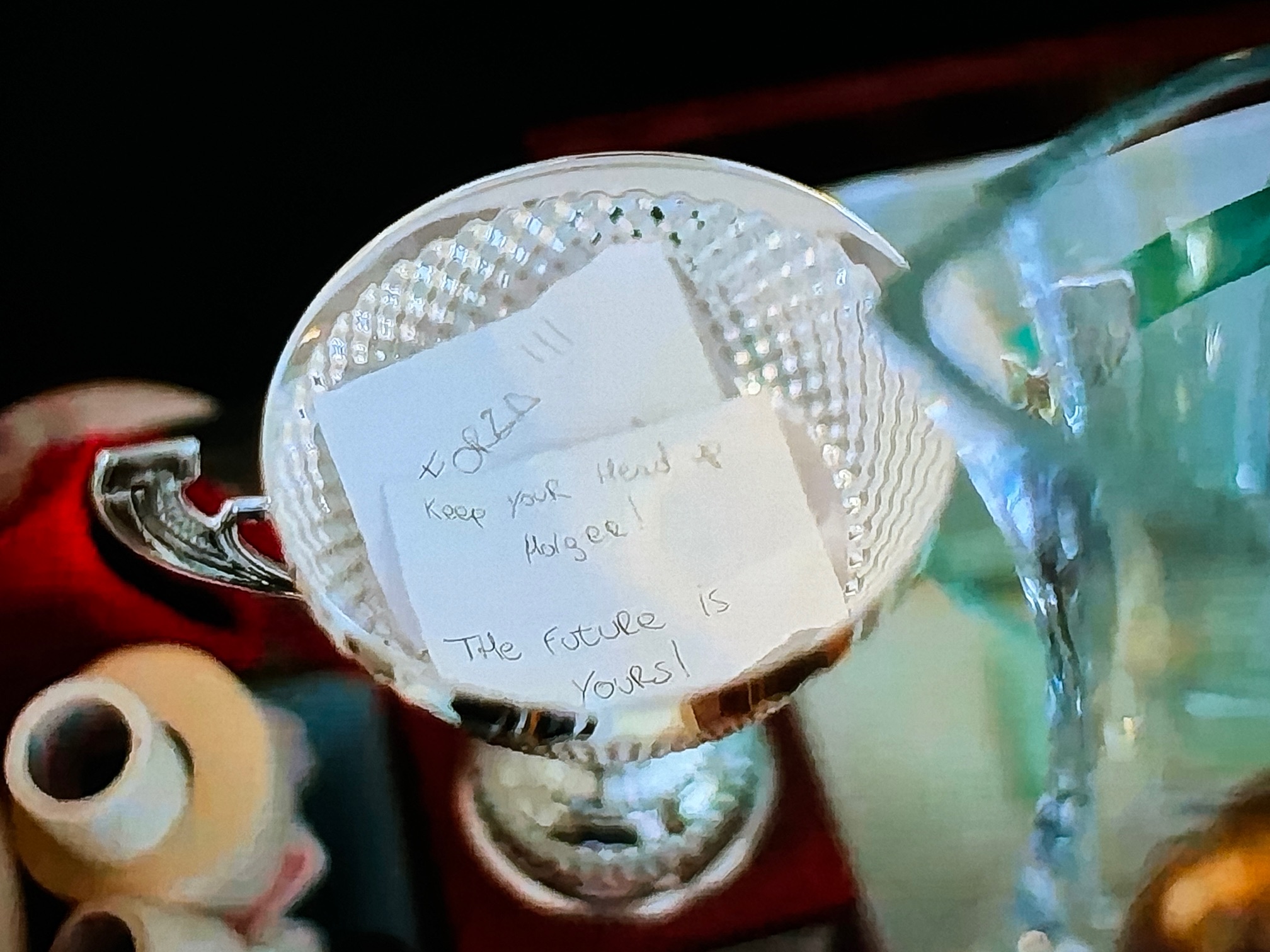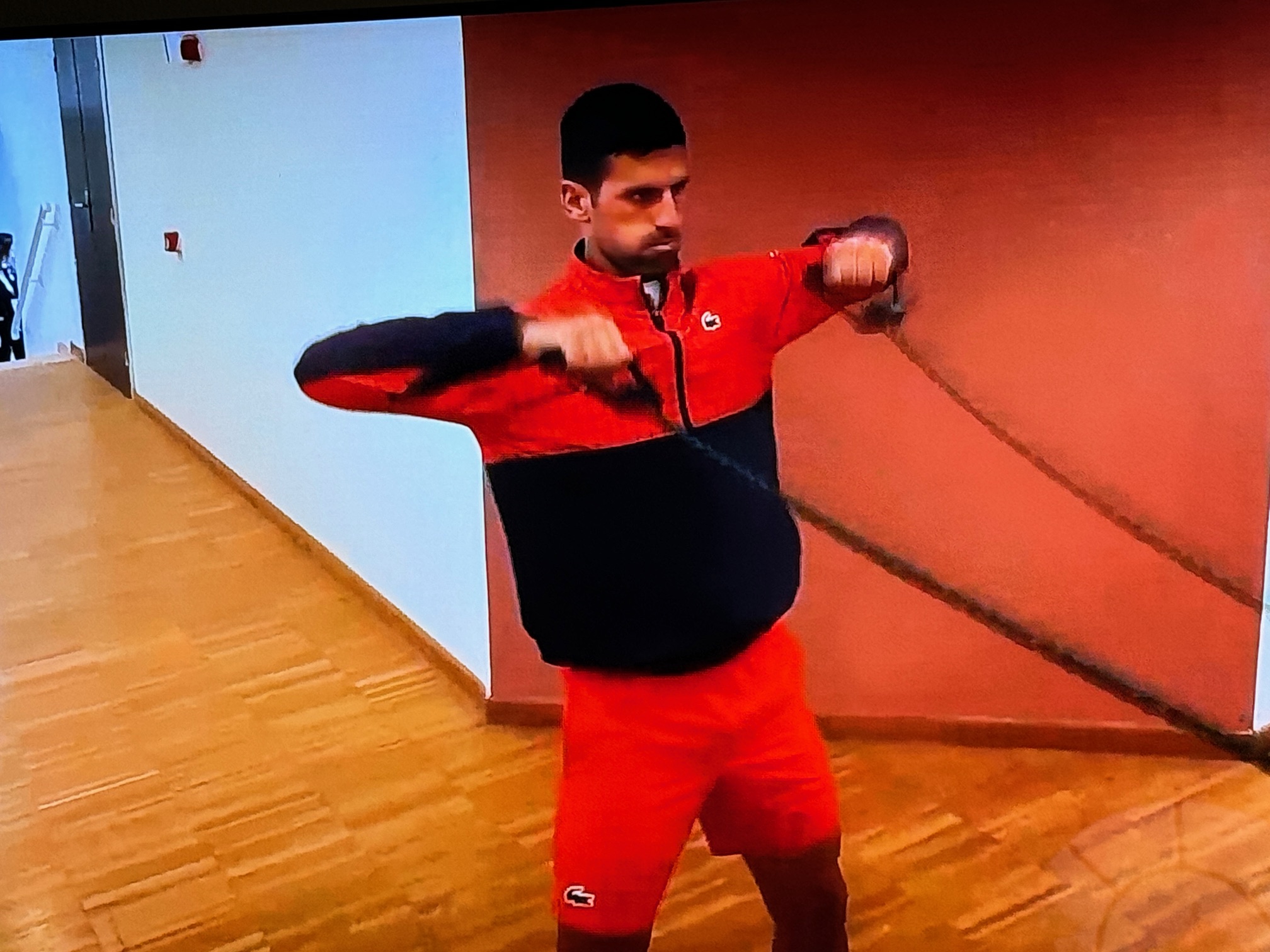Tennis Technology Tuesday
In my junior development days, there were basically only two drills that the coaches used for conditioning. The first was to line the kids up on the outside of one of the doubles alleys and have us “run lines” which is essentially just a series of short sprints. The second was running some number of specified laps around the tennis center, or later when I was playing scholastic tennis, the track around the adjacent football practice field.
It is not hyperbole when I say that I was scarred for life from running the lines. The simple fact of the matter is that I am dog slow. The worst variation of running the lines was as a series of successive races where the “winner” of each heat got to drop out. That was essentially the same thing as the coach pointing at me and telling me that I was going to be running a set of lines for the total number of kids in attendance that day.
Happier were the days when the coach pointed us toward the track with a specified number of laps. I fared much better when endurance rather than speed was in play. My sophomore year in high school we got a brand new coach who boldly imposed a requirement for a specified time on a 5k run to be in the starting lineup. That edict was quietly rescinded when only two girls could hit that mark. I was going to play line 1 either way.
The science and body of knowledge on the most effective ways to train for tennis agility and conditioning has advanced a lot in the interim. Straight up running for distance to establish a “cardiovascular base” has fallen from fashion. As it turns out, running those dastardly lines was the more effective of the two conditioning drills inflicted on me in my youth.
Interval training is generally recognized as the best approach for conditioning for tennis. The reason for this is that tennis is a series of short sprints, executed in short bursts. The longest sprint a player will reasonably make is constrained by the geometry of the tennis court. I have eyeballed that distance to be 65 feet at most.
If a player is serious about tennis, some amount of interval work should be performed on a periodic basis. This is particularly important under the current COVID-19 restrictions as I suspect that a lot of us are replacing some court time with workouts at home.
I have written about the Seconds Pro app before, and will undoubtedly write about it again. The good news is that the next time it comes up I will be able to shorten the discussion by pointing back to this article. If you play tennis competitively, you should be interval training. If you are doing interval training, you should consider using an app to support that activity.
I have been very happy with the Second Pro app. It comes with templates for High Intensity Interval Training (HITT), Circuit/Tabata, Round Timers, and purely custom timers. It has several chimes and tones for transitioning activities. I use a “Tibetan Bell” for meditation timers, a Boxing Bell for some of my jump rope circuits, and text to voice for most everything else.
Seconds Pro is also completely flexible on audio support. You can integrate audio within the app or just stream audio from another source and layer the timer on top of that. I am a big podcast listener, so it’s nice that it doesn’t force me to stick strictly to music.
In my recent “Six Weeks to a Better Level of Tennis” series I built two new custom timers using Seconds Pro. One was for the Davis Cup training circuit and the other was for a warm up routine. I have many other timers stored in the app that I used on a regular basis.
Unless you have a personal trainer following you around with a stop watch and directions on the next interval, you should really give an app a try. I think the Seconds Pro app might be even better than a personal trainer anyway.






